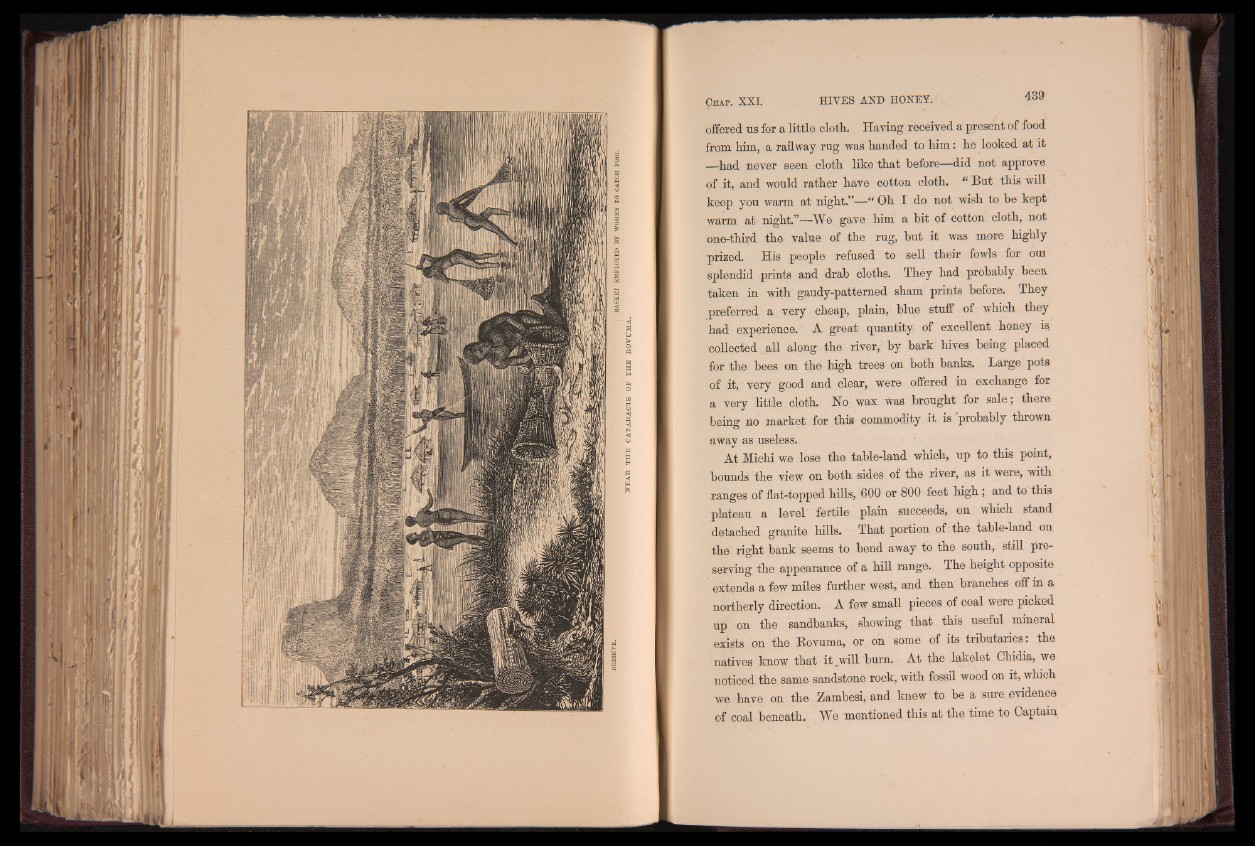
offered us for a little cloth. Having received a present of food
from him, a railway rug was handed to him: he looked at it
—had never seen cloth like that before—did not approve
of it, and would rather have cotton cloth. “ But this will
keep you warm at night.”—“ Oh I do not wish to be kept
warm at night.”—■We gave him a bit of cotton cloth, not
one-third the value of the rug, but it was more highly
prized. His people refused to sell their fowls for oui
splendid prints and drab cloths. They had probably been
taken in with gaudy-patterned sham prints before. They
preferred a very cheap, plain, blue stuff of which they
had experience. A great quantity of excellent honey is.
collected ..all along the river, by bark hives being placed
for the bees on the high trees on both banks. Large pots
of it, very good and clear, were offered in exchange for
a very little cloth. No wax Was brought for sale; there
being no market for this commodity it is probably thrown
away as useless.
At Michi we lose the table-land which, up to this point,
bounds the view on both sides of the river, as it were, with
ranges of flat-topped hills, 600 or 800 feet high; and to this
plateau a level fertile plain succeeds, on which stand
detached granite hills. That portion of the table-land on
the right bank seems to bend away to the south, still preserving
the appearance of a hill range. The height opposite
extends a few miles further west, and then' branches off in a
northerly direction. A few small pieces of coal were picked
up on the sandbanks, showing that this useful mineral
exists on the Bovuma, or on some of its tributaries: the
natives know that it .will burn. At the lakelet Chidia, we
noticed the same sandstone rock, with fossil wood on it, which
we have on the Zambesi, and knew to be a sure evidence
of coal beneath. We mentioned this at the time to Captain